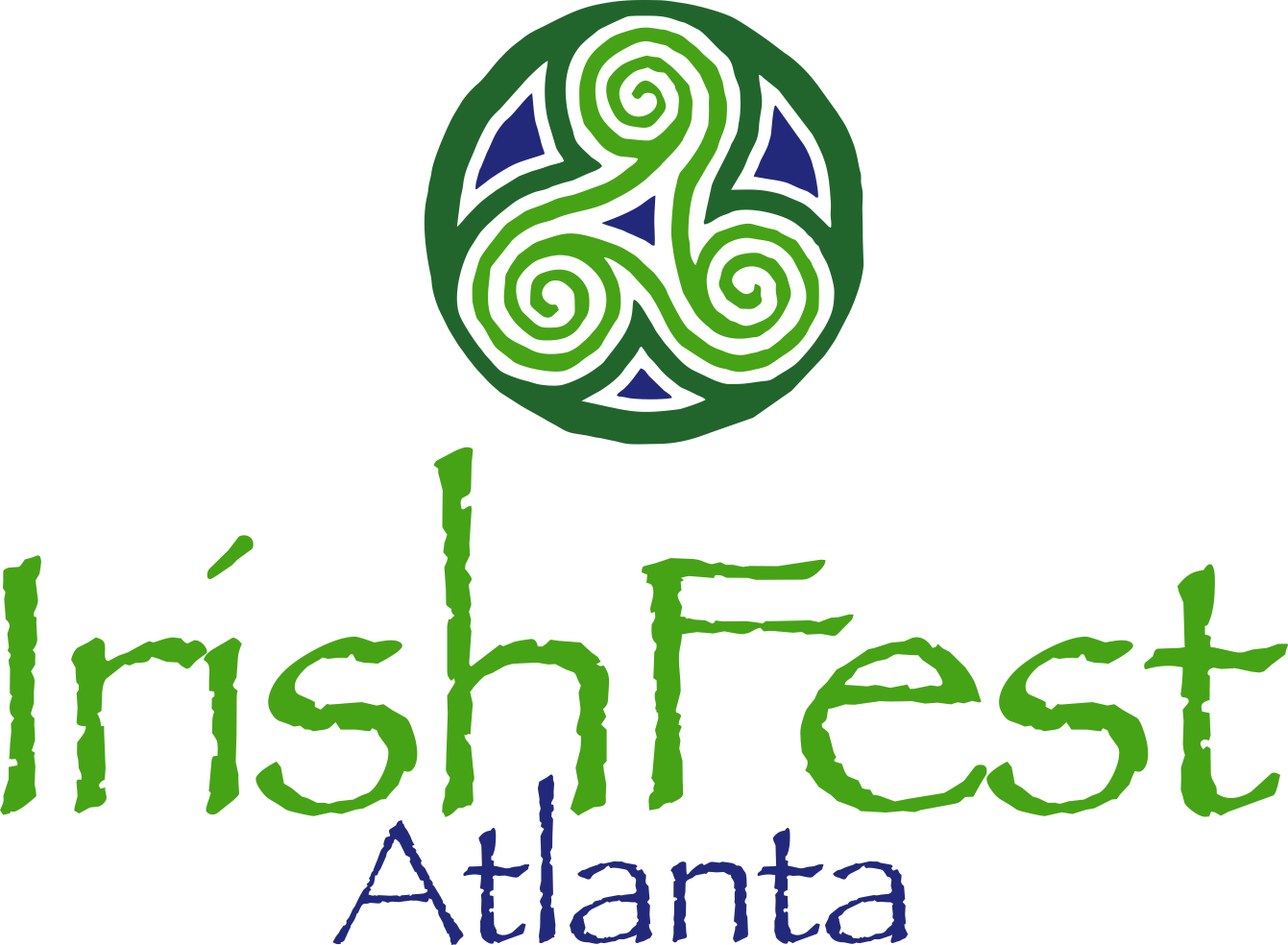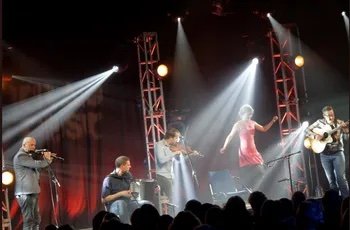Sunday Workshops
November 9, 2025
Featuring members of Téada
Following their Saturday night concert, members of Téada—Oisín Mac Diarmada, Paul Finn, Damien Stenson, Seán Mc Elwain, Tristan Rosenstock, Samantha Harvey, and Niamh Farrell —will each offer in-depth workshops on Sunday. With a focus on traditional style, ensemble musicianship, and personal expression, these sessions provide a unique opportunity to learn directly from one of Ireland’s most dynamic traditional groups. Workshops are open to players, singers, and dancers at a variety of levels; see individual descriptions for details.
Workshop Session 3 - 10:00 am Start
-

Sean-nós Dance - Sharleen Doyle
Renowned sean-nós dancer Sharleen Doyle offers an immersive introduction to the art of this traditional, improvisational Irish solo dance style. In this workshop, Sharleen will guide participants through basic steps, rhythm, and footwork, while emphasizing the expressive, relaxed, and spontaneous nature that defines sean-nós. Suitable for dancers and musicians alike, this session offers a unique opportunity to connect with Irish culture through movement and deepen your sense of rhythm and musicality.
-

Button Accordian - Paul Finn
Paul Finn’s powerful yet nuanced playing is central to Téada’s energetic sound. A gifted teacher as well as performer, Paul brings a clear, encouraging approach to helping accordion players improve their technique and stylistic fluency. In this workshop, he’ll teach a few carefully chosen tunes and focus on phrasing, bellows control, and ornamentation, with attention to how to develop lift and variation in your playing. Open to accordionists with some experience playing Irish traditional music.
-

Guitar Accompaniment - Seán Mc Elwain
Seán Mc Elwain is a versatile and accomplished player whose work on guitar, banjo, and bouzouki is rooted in years of performance, research, and teaching. A key contributor to Téada’s sound, Seán brings a thoughtful and articulate approach to melody and accompaniment alike. This workshop will focus on guitar accompaniment in Irish Trad music and songs, and will explore phrasing, right-hand technique, ornamentation, chord choices, and rhythmic patterns. This class will be taught on guitar, although bouzouki and banjo players are welcome to sit in and learn from Seán. Workshop is open to intermediate and advanced players.
-

Fiddle - Oisín Mac Diarmada
Fiddler and Téada founder Oisín Mac Diarmada brings a lifetime of experience in the tradition and a deep sensitivity to the rhythm and flow of Irish music. Known for his elegant style and expressive bowing, Oisín has taught and performed around the world, inspiring students with his thoughtful approach. In this workshop, he’ll focus on phrasing, rhythm, and ornamentation, helping players uncover the subtle techniques that bring tunes to life. Recommended for intermediate to advanced fiddle players looking to deepen their stylistic understanding and refine their technique.
-

Flute - Damien Stenson
Damien Stenson is known for his vibrant, driving flute style, full of rhythmic precision and lift. A long-time member of Téada, he combines technical mastery with a deep respect for the tradition. In this workshop, Damien will share tune settings and explore breath control, articulation, and ornamentation, with a focus on achieving clarity and flow. Ideal for intermediate and advanced flute players looking to strengthen their tone and deepen their connection to the music.
Workshop Session 4 - 12:00 pm Start
-

Lecture 2: The history of the Irish reel and some other dances" continued - Martin Dowling
These two lectures (Saturday and Sunday) draw on material presented in Martin’s book Traditional Music and Irish Society,Historical Perspectives from the archives of music in Ireland in the eighteenth, nineteenth and twentieth centuries. He will take you on a journey that starts in early eighteenth century Scotland, travels through the nineteenth century Irish countryside, and ends up in the Irish neighbourhoods in cities on both sides of the Atlantic. Martin will be performing on the fiddle and playing recordings while we answer questions like: What is a reel? Where did it come from? What was played in Ireland before the reel arrived? When and how did the reel arrive in Ireland? What were the earliest and most popular Irish reels? How is the Irish reel different? How has it developed in the 20 th century? Some knowledge of Irish music will be an advantage, but the lectures are open to anyone interested in Irish music, culture, and history.
-

Traditional Song - Niamh Farrell
Niamh Farrell’s versatile voice and love for music and singing were instilled from a very young age in her native Sligo, Ireland. Her musical influences are vast, allowing her to move effortlessly between Irish traditional, gospel contemporary and folk genres, offering the audience an eclectic mix of material. Niamh has shared the stage and travelled the world with many different bands and artists including Project West, Téada, Seamus Begley, Bobby McFerrin and many more. Niamh’s haunting voice is frequently broadcast on a number of radio stations and televised programmes including RTE Radio 1’s ‘South Wind Blows’ with Philip King, Kieran Hanrahan’s Ceili House, Other Voices, Port and BBC Radio 2. In 2014/2015 she embarked on a world tour with singer-songwriter David Gray as part of his ‘Mutineers’ band and has since recorded and performed as a supporting artist for the singer-songwriter.
-

Piano Accompaniment for Irish Music - Samantha Harvey
A talented pianist and longtime collaborator with Téada, Samantha Harvey brings energy and sensitivity to her accompaniment style. Her background in both classical and traditional music gives her a unique perspective on shaping harmony and rhythm around the tune. In this workshop, Samantha will share practical tools for supporting melodies with clarity and lift—focusing on left-hand rhythm, right-hand voicings, and listening closely to the tune’s phrasing. Open to pianists at any level who are looking to develop or refine their approach to Irish traditional accompaniment.
-

Bodhrán - Tristan Rosenstock
A skilled and musical percussionist, Tristan Rosenstock provides the rhythmic foundation for Téada with his tasteful and expressive bodhrán playing. With years of performance experience and a keen ear for ensemble dynamics, Tristan offers a clear and supportive teaching style. In this workshop, he’ll cover foundational technique, tone production, and how to create accompaniment that lifts and shapes the music. Suitable for players at all levels, including beginners with some basic familiarity and more experienced players looking to refine their sound.


